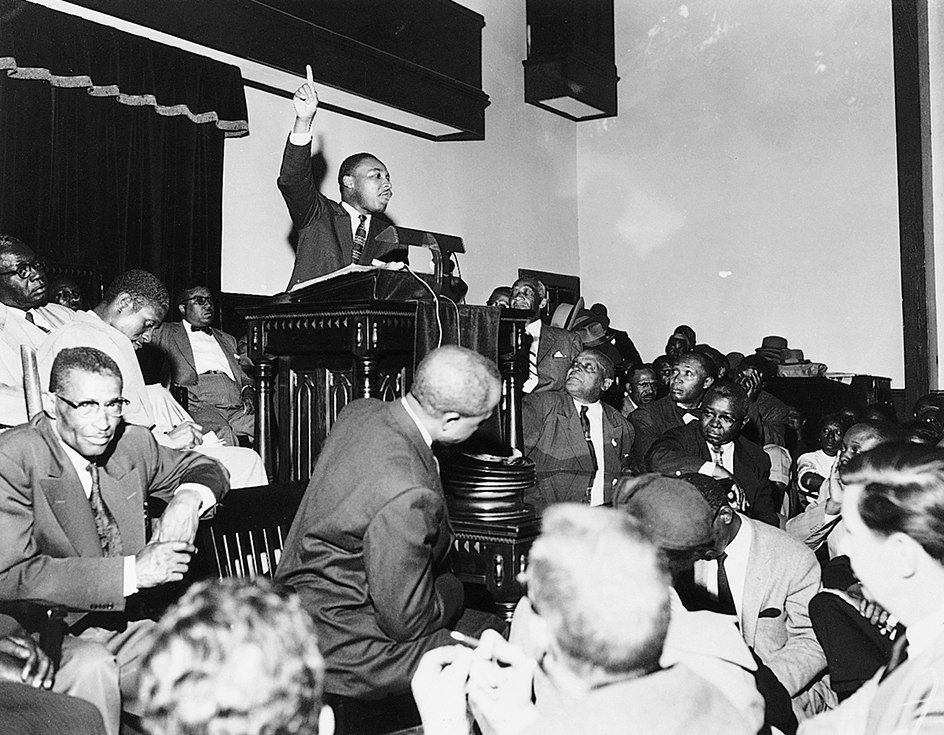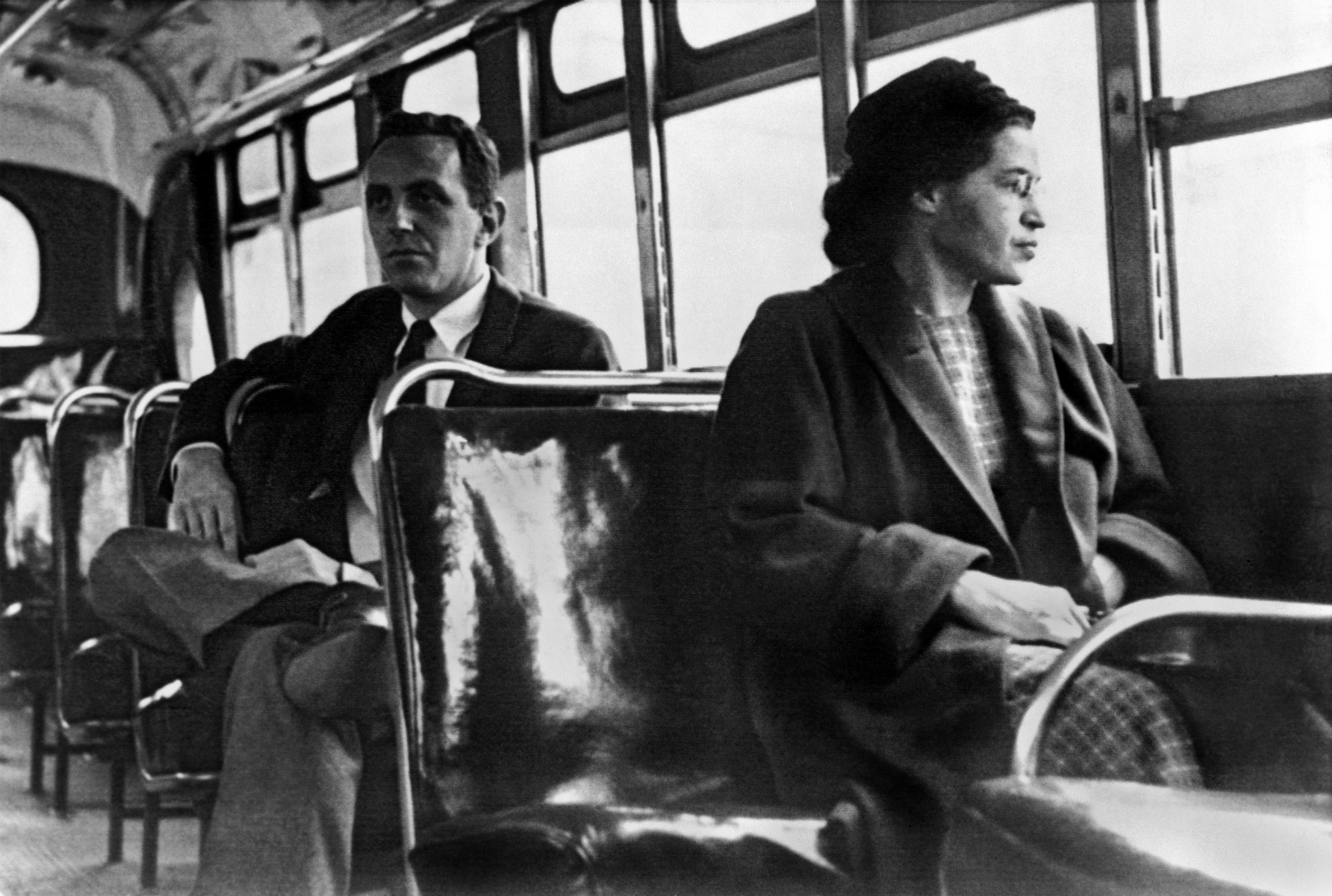Montgomery bus boycott was a protest of the segregated Montgomery, Alabama, bus system that took place from Dec. 5, 1955, to Dec. 20, 1956. Segregation is the separation of groups of people by custom or by law. During the boycott, many people refused to ride the city’s buses. The Montgomery boycott led to the end of segregated seating on public buses throughout the United States. It also helped bring about the civil rights movement .

In 1955, Montgomery and many other Southern cities had laws requiring that white people and Black people sit in separate rows on buses. The front rows were for white people only. The law required Black people to leave their seats in the next rows when all seats in the front rows were taken and other white people still wanted seats.
On December 1, in Montgomery, Rosa Parks , an African American passenger, was seated in the fifth row, the first row that Black people could occupy. A white passenger boarded. The bus driver told Parks and the other African Americans in her row to stand in the back of the bus so that the white passenger could sit down. Parks refused to move. She was arrested and fined for disobeying the city law. Members of the African American community were outraged.

On December 5, thousands of people attended a meeting in Montgomery to discuss the situation on the city’s buses. The meeting was called by the Montgomery Improvement Association, a group headed by Martin Luther King, Jr., a Montgomery Baptist minister. Most Black people in Montgomery used the city’s buses regularly. But at that meeting, they decided on a boycott of the buses until segregated seating on buses was abolished. Supporters of the boycott—both Black people and white people—walked, carpooled, or bicycled instead of taking buses. Some protesters were arrested or attacked. King’s house, among others, was firebombed. The boycott continued for over a year. Losing so many regular passengers on its buses caused financial problems for Montgomery.
In June 1956, a federal court ruled that segregation on city buses was unconstitutional. In November, the Supreme Court of the United States supported that decision. On December 20, the federal ruling took effect, and the boycott ended.
